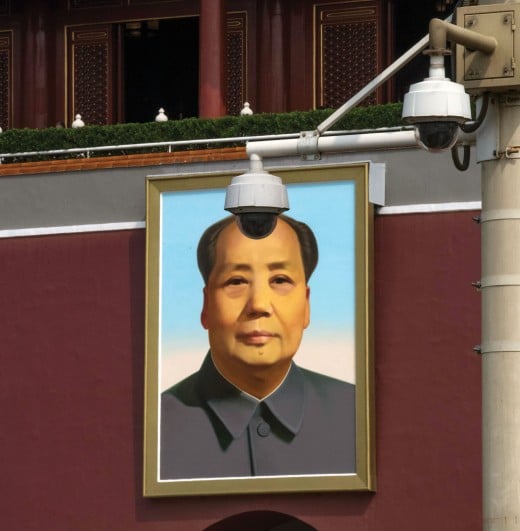Who Needs Republic When Y'all Convey Data?
From MIT's Technology Review, Aug. 20:
Here’s how mainland People's Republic of China rules using data, AI, together with cyberspace surveillance.

Here’s how mainland People's Republic of China rules using data, AI, together with cyberspace surveillance.

In 1955, scientific discipline fiction author Isaac Asimov published a brusk story close an experiment inwards “electronic democracy,” inwards which a unmarried citizen, selected to correspond an entire population, responded to questions generated past times a calculator named Multivac. The machine took this information together with calculated the results of an election that thus never needed to happen. Asimov’s story was develop inwards Bloomington, Indiana, but today an approximation of Multivac is existence built inwards China.
For whatsoever authoritarian regime, “there is a basic work for the middle of figuring out what’s going on at lower levels together with across society,” says Deborah Seligsohn, a political scientist together with mainland People's Republic of China proficient at Villanova University inwards Philadelphia. How produce y'all effectively principle a province that’s domicile to ane inwards v people on the planet, alongside an increasingly complex economic scheme together with society, if y'all don’t permit world debate, civil activism, together with electoral feedback? How produce y'all assemble plenty information to genuinely brand decisions? And how does a regime that doesn’t invite its citizens to participate nevertheless engender trust together with curvature world conduct without putting law on every doorstep?
Hu Jintao, China’s leader from 2002 to 2012, had attempted to solve these problems past times permitting a small-scale democratic thaw, allowing avenues for grievances to attain the ruling class. His successor, Xi Jinping, has reversed that trend. Instead, his strategy for agreement together with responding to what is going on inwards a acre of 1.4 billion relies on a combination of surveillance, AI, together with large information to monitor people’s lives together with conduct inwards infinitesimal detail.
It helps that a tumultuous duad of years inwards the world’s democracies bring made the Chinese political elite experience increasingly justified inwards shutting out voters. Developments such equally Donald Trump’s election, Brexit, the ascent of far-right parties across Europe, together with Rodrigo Duterte’s reign of terror inwards the Philippines underscore what many critics view equally the problems inherent inwards democracy, specially populism, instability, together with precariously personalized leadership.
Since becoming full general secretarial assistant of the Chinese Communist Party inwards 2012, Xi has set out a raft of ambitious plans for the country, many of them rooted inwards technology—including a destination to boot the bucket the the world leader inwards artificial word past times 2030. Xi has called for “cyber sovereignty” to heighten censorship together with assert amount command over the domestic internet. In May, he told a coming together of the Chinese Academy of Sciences that applied scientific discipline was the primal to achieving “the bully destination of edifice a socialist together with modernized nation.” In January, when he addressed the acre on television, the bookshelves on either side of him contained both classic titles such equally Das Kapital together with a few novel additions, including 2 books close artificial intelligence: Pedro Domingos’s The Master Algorithm and Brett King’s Augmented: Life inwards the Smart Lane.
“No regime has a to a greater extent than ambitious together with far-reaching excogitation to harness the mightiness of information to modify the means it governs than the Chinese government,” says Martin Chorzempa of the Peterson Institute for International Economics inwards Washington, DC. Even to a greater extent than or less unusual observers, watching from afar, may hold upwardly tempted to wonder if such data-driven governance offers a feasible choice to the increasingly dysfunctionallooking electoral model. But over-relying on the wisdom of applied scientific discipline together with information carries its ain risks.
Data instead of dialogue
Chinese leaders bring long wanted to tap world thought without opening the door to heated fence together with criticism of the authorities....MUCH MORE

No comments